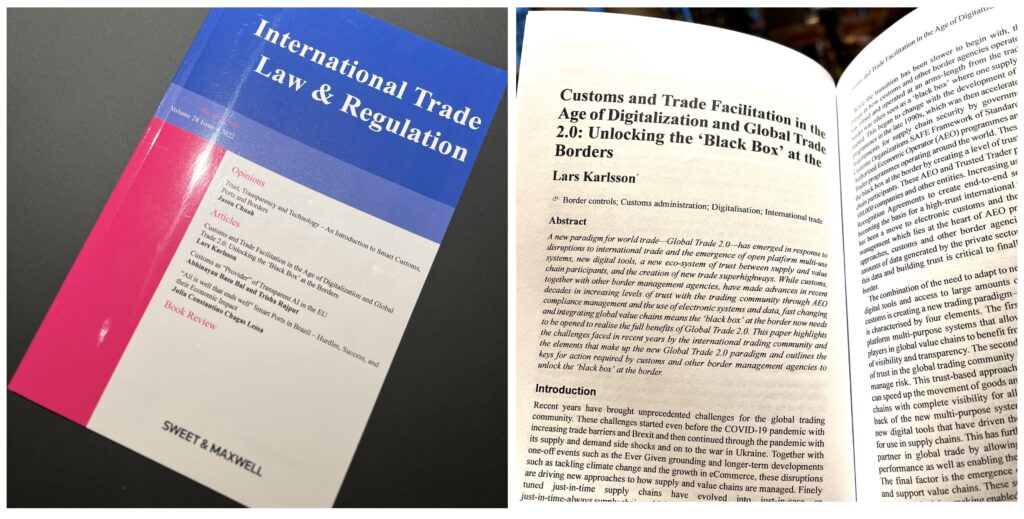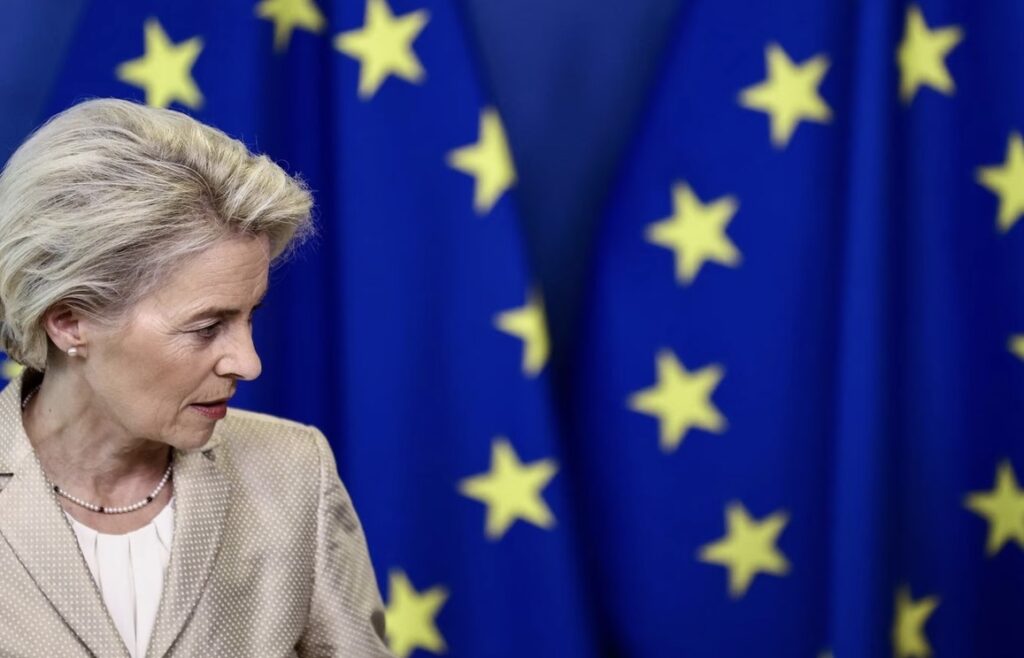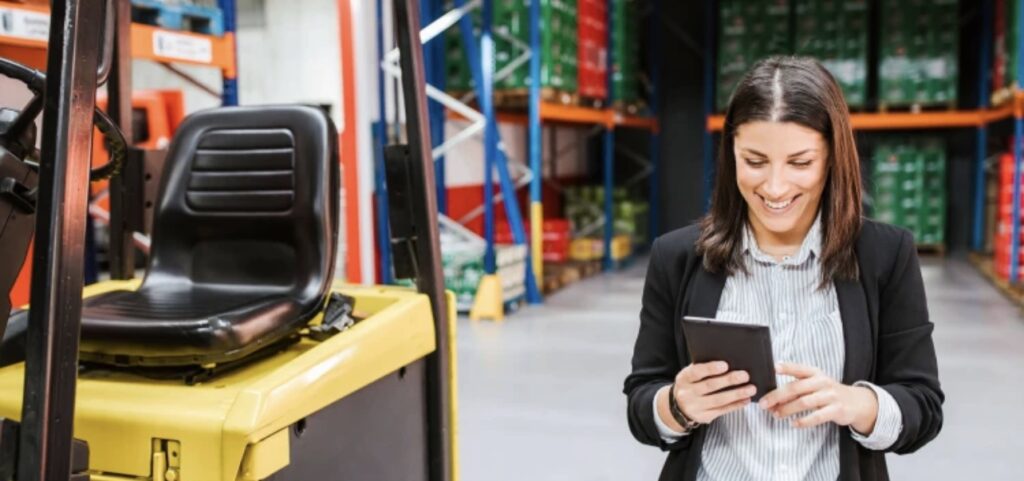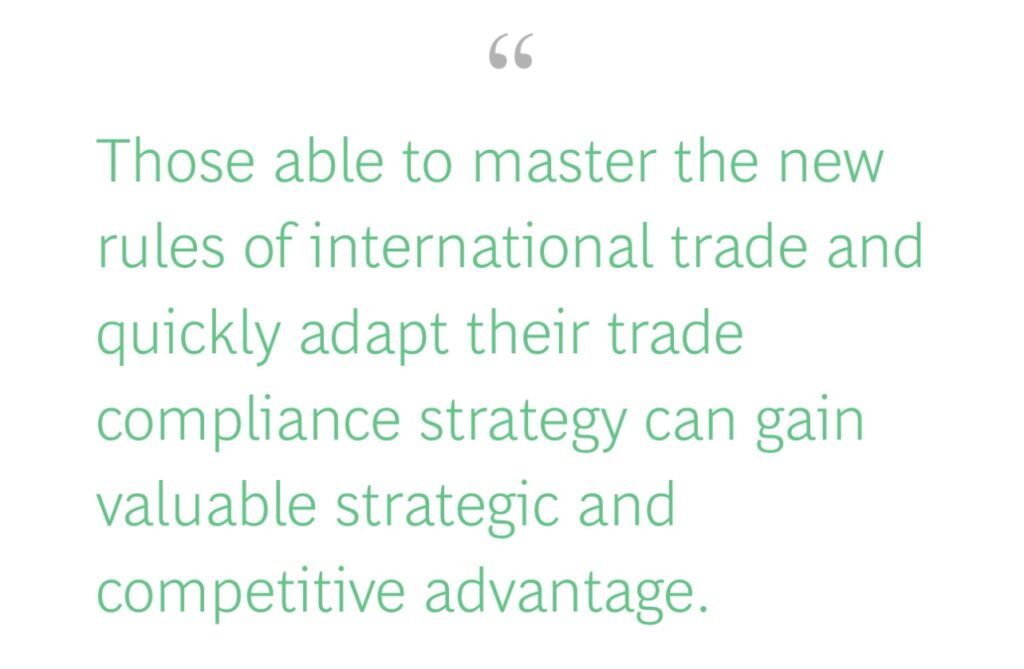Don’t miss my latest published academic article, ’Customs and Trade Facilitation in the Age of Digitalization and Global Trade 2.0: Unlocking the ’Black Box’ at the Borders’ in International Trade Law & Regulation.

In a time of globalization, crises and disruption, we have seen riple effects at borders causing major delays and supply chain challenges for the integrated value chains of international.
In this article I explain what we can do about it and how we can remove uncertainty and provide improved resilience and predictability. How strategic customs planning can make your trade flow.
You find it here: https://www.sweetandmaxwell.co.uk/Product/International-Trade/International-Trade-Law-and-Regulation/Journal/30791309
More open trade used to be a no-brainer for the EU. Now European industries are fighting to survive.

An article in Politico claims that, the last big defender of rules-based open trade — the European Union — is about to fall.
It is happening in slow-motion and the impact will be painful. If the world’s largest trading bloc gives up on the concept of free trade, the entire global economy will be hurt.
But such an outcome seems increasingly likely, as the European Commission and its powerful trade department come under intense pressure to join China and the United States in a game of economic self-interest and protectionism.
The era of Europe First may be about to begin.
“The new assertive industrial policy of our competitors requires a structural answer,” Commission President Ursula von der Leyen declaredin a critical intervention on Sunday. “Europe will always do what is right for Europe.”
For decades, more globalization was a no-brainer for Brussels, providing business opportunities and jobs. Growing calls from Paris and Washington for more strategic autonomy, or stringent export restrictions, were dismissed by the liberal European Commission which von der Leyen now leads.
This free-trading ethos has finally hit a brick wall in the form of U.S. subsidies for clean technology, such as American-made electric cars. In order to understand what went wrong, it’s vital to go back to the failed experiment in free trade with China.
The West tried to pull Beijing into the multilateral trading system — and it didn’t work. China only doubled down on its state-driven economic model. Its rapid growth and dominance in key technological fields have pushed both Washington and Brussels to rethink their trade strategies in recent years.
“The EU has always supported free trade and this is a good thing,” Kristjan Järvan, the Estonian minister for entrepreneurship, said last month. “But now, we see that non-democratic powers are trying to use it against us.”
Read the entire article here: Europe First: Brussels gets ready to dump its free trade ideals
Source:Politico
In this interesting article BCG writes, ’Sending and receiving goods across borders is becoming so complex—and the penalties for missteps so steep—that risk management in trade increasingly demands attention from the C-suite’.

The time when large global companies could take an ad hoc approach to supervising the massive volumes of goods they ship and receive around the world is over. In the past few years, trade compliance has become enormously complex—and a significant source of corporste risk. In addition, CEOs need more expertise on how to navigate mounting geopolitical hazards and make their supply chains more resilient.
The role of risk management in trading, therefore, needs to change rapidly. And it should command greater attention from top management.

Many companies with large import and export footprints should consider having this function led by a senior executive—a “chief trade officer”—who reports directly to the C-suite. This executive should be involved in a wide range of strategic issues. He or she should be able to anticipate geopolitical shifts that could impact the business and help avert trade risks. The chief trade officer should also enable the organization to reduce costs and conduct scenario planning in order to seize any competitive opportunities created by changes in trade patterns and the global environment.
Read the article here: CTO
Source: BCG






You must be logged in to post a comment.